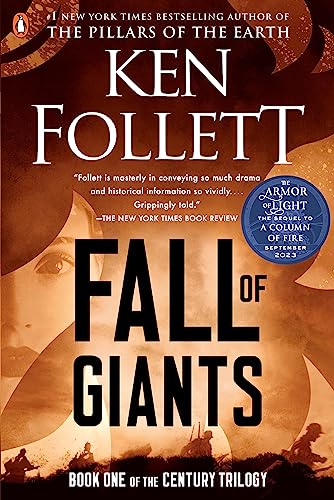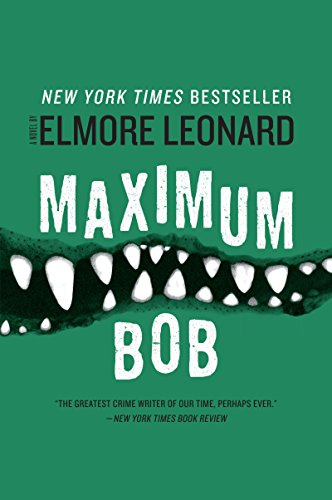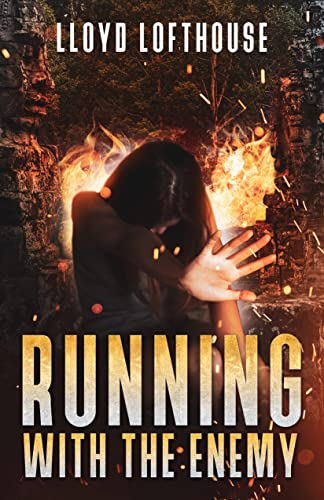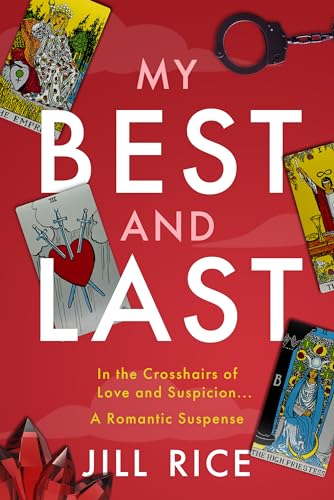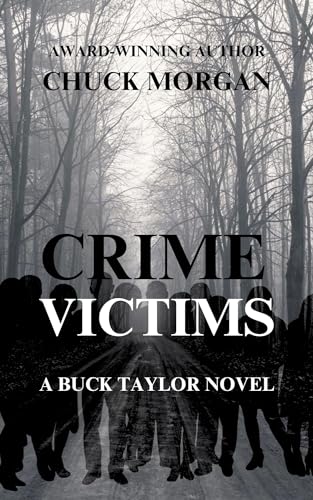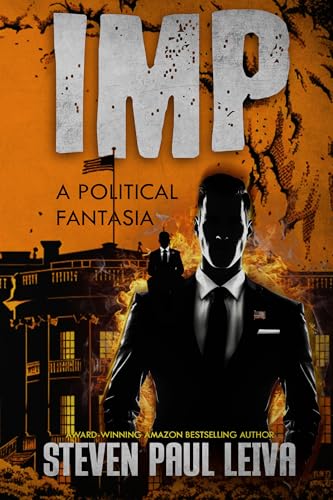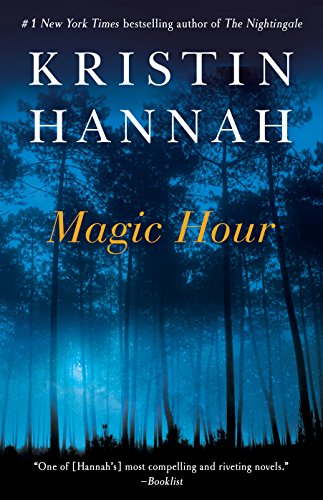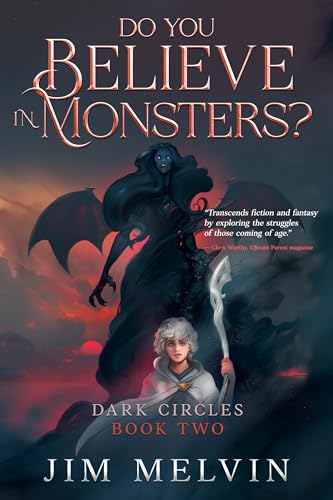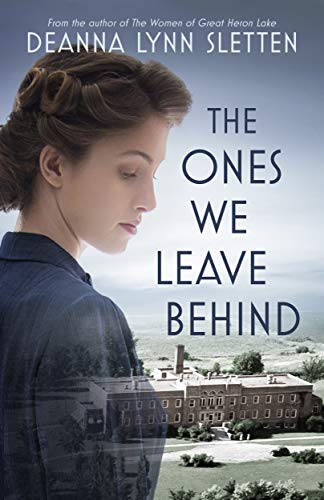An Excerpt from
Editor, Kindle Nation Daily
©Kindle Nation Daily 2011
SNAKE WALKERS
PROLOGUE
Chapter 1
Think “The West Wing meets I Am Legend….” – Free Kindle Nation Shorts – February 13, 2011: An Excerpt from TORMENT, A Novel of Dark Horror by Jeremy Bishop

An Excerpt from
By Jeremy Bishop
Think “The West Wing meets I Am Legend….”
By Stephen Windwalker
Editor, Kindle Nation Daily
©Kindle Nation Daily 2011
Small town reporter, Mia Durante, finds herself having brunch with the President of the United States on the day civilization comes to an end.
An electromagnetic pulse blinds the U.S.
Cars crash.
Planes fall.
Chaos reigns.
Power is restored within minutes, but it’s already too late.
Russian nukes are falling. U.S. allies around the world are all ready wiped out.
The United States will cease to exist inside of five minutes.
After giving the order to launch a full-scale retaliation, dooming the planet, the president, White House staff, Secret Service and those lucky enough to be visiting the white house, are whisked below ground where they board several Earth Escape Pods. As the EEPs launch into Earth orbit, missiles descend.
Less than forty survive the end of the world. When they return, they’re greeted by survivors of a different sort. The bloodbath that follows leaves Durante and nine other survivors on the run. They find themselves fighting for survival in a world in which only torment remains and where death is the only escape.
That’s the set-up for Jeremy Bishops’s bestselling novel TORMENT, from which we are serving up a nice 7,800 excerpt this evening through our Free Kindle Nation Shorts program. Well, perhaps “nice” is not the best choice of words here.
But it doesn’t matter. With a set-up like that, I think there are very few readers who haven’t clicked through already to begin reading the free excerpt. So I don’t think there will be a lot of attention paid here to my choice of adjectives. After all, it’s the book that’s important here, and if you start reading I think you’ll quickly agree….
“Jeremy Bishop takes a terrifying bite out of the zombie genre with TORMENT. This is a dark and devious post-apocalypting thrill-ride!” -Jonathan Maberry, NY Times Bestselling authr of PATIENT ZERO and ROT & RUIN
“TORMENT is a nightmarish descent through Armageddon. With barely a pause for breath, Bishop drags you out of normality, straight into the depths of a devastated post-apocalyptic landscape. Surreal and extraordinary locations, grotesque characters and outlandish events rise up from the devastated ashes of the familiar in this startlingly original horror novel. Dreamlike, disturbing and never predictable, once you start reading, you won’t want to put it down.” — David Moody, author of HATER, DOG BLOOD & the AUTUMN series.
“Jeremy Bishop explodes onto the zombie scene with TORMENT, a thought-provoking gorefest that turns the genre on its head. Both shocking and riveting, this is a debut novel that leaves the reader hungry for more.” — Steven Savile, #1 International bestselling author of PRIMEVAL and SILVER
“With originality not seen since Fleischer’s Zombieland, Bishop’s debut novel will drag you kicking and screaming to the very bloody end. Look out Maberry … there’s a new sheriff in town.”
— Thenovelblog.com
“This is one of those kick-ass icky books that constantly surprised me. I’m looking forward to what Bishop has up his sleeve next.” — Jeff Ayers, Author Magazine
“TORMENT is a fast paced horror story filled with monsters and zombies (but not the kind you might expect in a novel like this). [It’s] gory and intense, all things a book like this should be.”
— TheManEatingBookworm
BONUS CONTENT
Exclusive excerpt of BENEATH by Jeremy Robinson
Exclusive excerpt of 33 A.D. by David McAfee
An Excerpt from
The physical toll of reentry seemed paltry compared to the pulsing acceleration of liftoff. Mia’s stomach lurched when gravity took hold, but other than that, she remained fully conscious and aware. The view out the window shifted from dark space, to deep purple and then to clear blue sky. Not a cloud in sight. The view through the command center window was much more expansive than the small portal had been, but she still could not see the ground.
“Everyone up!” Mia shouted as she rejoined the others. She felt happy to see Garbarino and Paul Byers jump up at the ready.
Within twenty minutes, Mia, Collins, Chang and the Byers brothers lagged behind their three Secret Service escorts. Mia was in shape, but lacked endurance, especially when carrying a fifty pound seven year old. Liz seemed to sense this and tapped her shoulder. “I can run now,” the girl said. “I’m not afraid anymore.”
Free Kindle Nation Shorts – February 10, 2011: An Excerpt from Class Collision: Fall from Grace, a novel by Annette Mackey
What does it mean when an indie novel comes out of nowhere to score a better than 4.9-star rating from 12 Amazon reviews?
Well, certainly no book is intended to please everyone, but I’ve got to say that when you look beyond the ratings and read the actual reviews for Annette Mackey’s sweet but nicely textured hi
 |
| Annette Mackey |
storical romance Class Collision: Fall from Grace, she has accomplished something pretty remarkable for a first-time indie author.
The first rave review that I read was written by Avni, age 17, who couldn’t put it down, but then, when she finished it, she said “I passed it onto my neighbor for her to read. She read it in about three hours and was then banging on my door to talk to me about how amazing she thought this book was.”
By the time I got to the last review, it was clear to me that readers of all ages had found something special in this novel, and reviewer Margaret Williams put the icing on the cake when she shared this:
Just so.
Here’s the set-up, followed by a link to the author’s generous 10,000-word excerpt:

Born into wealth and privilege, David spends his days rattling the servants and torturing the maid until he is kidnapped for ransom and left for dead. Grueling years follow until he meets Linda.
She’s sassy, pigheaded, beautiful and way more than he can possibly handle. Hate, love and passion combine as he tries to win her heart. She sees him as a drifter. Little does she know he’s a prince in disguise.
Set during the Great Depression, Class Collision will transport you to a simpler time filled with heartache and unexpected love.

An Excerpt from
Fall from Grace
It was dark and cold. David’s head rolled as he emerged from the blackness. For a minute he thought it had been a dream. Then, with a start, he realized that he was not home in his bed. He had been attacked! With every ounce of effort, he forced his eyes open and tried to focus. Odd. What were his shirt and tie doing there? He was not lying down, but rather his head was hanging as he sat in a chair. Ah, he thought, now it made sense.
Incrementally, he began to hear through muffled ears. Someone was crying, no … sobbing. Groggily, David raised his head, and it swayed in response. Alex was a few feet away, tied with a rope across his chest and his arms behind his back in a small wooden chair. Puzzled, he looked down at his own chest again. Strange, he had not seen the rope there before. Then he realized pain in his arms and wrists, a burning sensation that increased dramatically as he became more aware. He, too, was strapped from behind, but with what, barbed wire? Irritated, he wondered why his antagonists had stretched his arms so tightly. Didn’t they realize the job could have been done without causing so much pain? And what was this rope drawn down across his legs for? Were they going on a Ferris wheel? Really!
Nearly fully awake, he looked at Alex who was sniffling. David felt a surge of anger. Crying at a time like this was not going to help matters. Irritated, he looked away.
“I’m sorry,” Alex said with a quiver.
David swung his head back around, and it flopped in response from the lingering drugs.
“I’m sorry I didn’t listen when you said you were scared.” Alex started to cry harder, despite his obvious effort to control his voice.
Although he was embarrassed for Alex, David was suddenly more embarrassed for himself as he recollected the way he had acted. Hearing Alex verbalize it was even worse. Wanting to change the subject he spoke. “Do you know what’s going on, Alex? Who were those men, and what do they want?”
“I don’t know,” Alex trembled. “I only woke up just a few minutes before you. I don’t know anything.” Alex sniffled as a few more tears dribbled.
If he hadn’t acted so peculiar himself, David might have word-lashed Alex right out of his hysteria, but seeing as he had just met those unwelcome emotions, he decided to let it go. Instead, he looked around the room hoping for a clue. Just then, Alex burst out.
“What’s going on here, David? Obviously you know something. You’re the one that said we shouldn’t go down to the car!”
“Shhh!” David shot back. “They’ll hear you.”
“Who? Who’s going to hear? David, you had better let me in on this or so help me-“
David cut him off in a loud whisper, “I have no idea, Alex! But I’ll tell you one thing, it’s pretty dumb to sit here crying about it.”
“Oh sure, now you’re the tough guy. You little wimp. I saw you! You were shivering like a chicken liver.”
“Fine, Alex, I was scared as a chicken liver,” David emphasized. “Are you happy now?”
Sheer raw emotion had taken over. “Act like it was nothing. I’ve never seen anyone so terrified in my entire life.”
David glared at his words. “Will you just stop so I can think?” He tried to keep his voice down, but like Alex, he, too, was tense. The combination of the situation and the lingering drugs blurred his mind in a most unsettling manner.
“You’re just a big phony,” Alex snarled. “I heard you whimpering at the conservatory, and I’ll never let you forget it. You treat everybody as if they were nothing. But you’re no better.”
Alex continued to rant, but David didn’t care. They were in trouble, and somebody had to take the lead. He noted how dark it was outside and wondered how much time had passed. He thought of Clifford’s reaction when he had buried the Spanish coins and wondered if his parents had been informed yet. Poor Mother. She had been through enough to last a lifetime.
Alex’s ranting continued. “… You think you’re so special, so much better than the rest of us. Well, let me tell you something, mister, you’re just the same as everybody else. The only differences is that you’ve never had to deal with anyone so spectacularly and magnificently irritating. That’s why you can’t understand how other people feel. And what’s more, you’ve got no social skills! None whatsoever. You think you’re so superior, but you’re not! Oh, except that, of course, you’re really good at playing the puppet and, well, I hate to be the one to break it to you because it’s going to come as a total shock, but you’re totally stuck-up and irritating and downright rude with your I’m better than you attitude …”
“Oh, brother,” David spat. Alex had to take this opportune time to fall to pieces. Great. Just great. It looked like David was going to have to figure things out on his own. He turned his attention back to the inside of the room. The floor was tile, and there were several desks shoved against the far wall. As his senses awakened, he became painfully aware of a miserable rotting stench, like molding socks. Err … At least it smelled the way he imagined dirty socks would smell. Having never smelled such a thing, he was left to his imagination.
Frustrated, he pulled at his arms. This hurt! How was he supposed to concentrate when his arms were slowly being pulled from their sockets?
“Can you see anyone out that door?” David whispered, interrupting Alex who was still in the process of venting every real and imagined oppression that he had ever endured in his life.
Surprised, Alex stopped. “Uh … ” he sputtered, startled back to reality.
“Well?” David pressed.
Alex stretched his neck as far as he could. “No,” he whispered still craning. He had been so busy ranting that he had totally lost track of the current situation.
“They must not be here, or they would have come when they heard us talking,” David reasoned aloud as he tried to scoot his chair toward Alex’s. His unknown adversary had tied each foot very tightly to a different leg of the chair. Only his toes reached the floor, making each inch gained with a wince of pain. His unaccustomed body immediately set his brain to work on the abuses he would inflict on his abductors once they were brought to justice. Chinese water torture for one. He heard it was quite effective.
“Why do you think they took us? I mean, brought us here like this?” Alex asked. “We haven’t done anything. Have … have you … done anything?”
Sometimes David wondered at Alex. How could he be the oldest? He was so stupidly naїve. “They probably kidnapped us for ransom.”
“Kidnapped? They kidnapped us?”
David stopped his efforts momentarily to give Alex an even bigger look of dismay. “What would you call it?”
“Well … I don’t know. I guess … I … didn’t think,” he admitted.
“I’ll say.” Then in irritation he shot out, “Do I have to do all the work here? Maybe you could work toward me too.”
Understanding smacked across Alex’s face, and he immediately sprang into action, if you could call scooting inch-by-inch “springing.”
After a few minutes of agonizingly slow progress, they were in position, back to back. “Okay,” David whispered, “hold still while I try to untie you.”
“Are you sure this is such a good idea?” Alex began to doubt the intelligence of the plan. “What if they come back? I don’t think they’ll be too happy to catch us like this.”
“Be quiet and concentrate,” David ordered.
“I’m holding still, how much concentration does it take?”
“Then pipe down so that I can concentrate!”
“You know, David, Mother would never believe what a pain you really are. Have you ever noticed that you never listen to anybody but yourself? Oh no. You’ve always got to be in charge. You are two years my junior, and it gets annoying! Even now, when we are both tied up, who gives the orders? David, always David. I’ve about had it.”
“Could you pleeeease?”
“You see? Still giving orders!”
“For Pete’s sake. I think you’re trying to be difficult.”
“Don’t turn this around on me!”
“How much effort does it take? You press your lips together and voilà, closed mouth, hence silence.”
David continued to work on the ropes as they argued. Despite the quarrel, he did make some considerable progress. Unfortunately, and unbeknownst to them, an exterior door had opened and shut during the course of their argument, giving an advantage to the unforgiving stranger that was now upon them.
“What’s this?”
Alex and David both looked up to see a tall, unkempt man with sandy hair standing in the doorway wearing tattered brown pants and suspenders that rolled over a once-muslin shirt. David recognized him immediately as the man who had pulled him inside the car.
“Why you lit’le weasels,” the man whom they would come to know as Willy spoke with a broken English accent. “Eh, Beez, we got ourselves some ‘neakers here, we do.”
A shorter, heavier man with dark hair came into the room. The very man who stood watching that day when David insulted the beggar woman and her child.
Beez wore suit pants and a white shirt with several buttons undone at the top and sleeves rolled to the elbows. A cigarette hung from his mouth as he leaned one hand on the doorframe. Rolling the cigarette with his lips, he summed up the situation. His voice was soft and gritty. “So here you are, back to back. That’s not the way we left ya,” he said as he paced circles around the boys. “What’s a matter? Ya sick o’ lookin’ at each other?” He spoke with a thick Brooklyn accent.
David looked directly into the man’s dark eyes and protruded his chin in challenge. Alex preferred to look at the floor, hoping beyond hope that his lack of eye contact would dismiss him from the conversation.
“Huuhhh?!!” the man shouted.
By raising his voice, David surmised that they were in the country, away from eager ears.
Beez’s volatile temperament was on the verge of exploding. “Just what do you think you was doing?”
“That’s just what I was about to ask you.” David spoke with authority. “I demand you release us. Now!”
Beez inhaled deeply then flicked the smoldering cigarette across the floor, the butt still glowing as it came to a spinning stop. He crouched and breathed the soot into David’s face causing his eyes to water as he coughed.
Beez remained inches from his face, studying, until without warning, he threw David’s chair across the room in a single heaving motion. The chair landed at an angle on two legs as it screeched and teetered to the floor with a crash on its side. Unable to compensate, David’s head clunked down with a sickening thud on the tile.
“That’s where I left ya,” Beez proclaimed and pulled a fresh cigarette from his pocket. “Rich brat,” he muttered as he turned for the door. He snapped his fingers at Willy. “Take care o’ the other one,” he said as he left.
Willy’s eyes had glazed over as if watching a scene at the theater. Instantly, he snapped and tightened Alex’s ropes as Alex let out a soft grunt of pain. Then Willy unleashed a painful smack across Alex’s face with the back of his hand. Alex’s head jerked to one side from the impact. Satisfied, he went to David and cinched his ropes tighter before turning to leave. With obvious satisfaction, he left David lying motionless on the cold tile floor.
Alex stared at the closed door then back at David, then at the door again. Finally, he whispered. “Are you all right?” His voice was breathy and hoarse with fear. The only light came from beneath the door. “David?” Alex pressed. He couldn’t call any louder for fear that the men would return and with that thought he started to hyperventilate. “David,” he continued to whisper as he breathed in heaps.
David’s head was spinning, leaving him unable to answer. Halfway between two worlds, the conscious and unconscious, and still swimming in a sea of lingering drugs, he couldn’t manage a word. He felt the warmth of acid threatening in his mouth as it spilled in his throat. The smoldering cigarette that lay near his face only made matters worse.
“David …” Alex continued to huff in hyperventilation. “David … are you okay?”
“I’m fine,” David finally managed to muster. No matter how bad the pain, he couldn’t stand the idea that Alex might learn of it. He was tied to a tipped chair with ropes tearing at his flesh, his head reeling from the combined assault of trauma and drugs and the fear of imminent vomit. This was bad, and Alex wanted to know if he was okay? No. He was notokay, but he wasn’t going to say it.
He closed his eyes and imagined the Virginia coastline with a cool ocean breeze. Mind over matter, mind over matter, that’s all it takes. Mind over matter. A few minutes later, his mind lost the matter as he puked it from his guts in heave after heave. Thankfully, there wasn’t much to expel. They hadn’t eaten since breakfast so the putrid regurgitation was mostly water and acid with an occasional lump here and there.
Alex looked on in horror through the darkness. “I don’t think you’re okay,” he commented dryly, turning his head so that he wouldn’t join in vomiting as David heaved again and again. “Nope nope,” he said shaking his head against the malodorous smell. “Definitely not okay.”
When it was over, David tried to rest his head, only to realize that doing so would settle him right in the middle of the puddle of vomit. “Fresh mountain snow, big puffy clouds, cool autumn breezes,” he mumbled to himself. It was a difficult process. The acidic soup lay only inches from his face. To his grave misfortune, the idea that he would be sleeping in it combined with the smell made him heave again … And again … One more time.
The muscles in his abdomen ached from the pressure as the violent process wreaked havoc. What he wouldn’t give for the use of his hands. It would be worth every single last Spanish coin. At this point, for a damp, soothing washcloth, he would even throw in his loyal feline. This drip-dry business was no fun at all. Where was Clifford when he needed him? And Mother … she would wipe his sweaty forehead with a cloth and talk in soft, soothing tones. He thought of how she would rub his arms down as he lay on the bed and pictured her silken hair shining in the glow of a dim lamp. Reluctantly, he released the tension in his neck and let the upper half of his head rest in the pool. With a grimace, he closed his eyes against the odor. The room was still turning. Wishing it to be still, he opened his eyes. No such luck. Halfway around, then back again. Too tired. Too tired … He rested back as the smell drifted. Sleep … was all … he … wanted.
Alex couldn’t understand why David had thrown up. And sleep? It was unbelievable and totally unfair. What a brother! Bossy, pretentious, proud, and able to sleep in any position.
“There I go again,” he chastised. “I’ve got to stop.” His penny-ante side was taking over again, but it was hard to believe that some part of this wasn’t David’s fault. Nobody liked him. He must have done something to someone. He must be to blame. He must.
But then, he was Alex’s best friend.
Friday before Thanksgiving, 1931 …
Dawn approached and with it, the revelation of the grungy state of their new residence. The building was noticeably run-down with piles of junk heaped everywhere. There was a puddle of water near where David lay, remnants of the last rain, and what looked to be a bunch of desks the night before was really three desks piled amidst rubble and demolition waste shoved along the opposite wall.
Between the boarded windows, thick grime, and soot, Alex could see a field of sorts, one which looked long-since abandoned, with an old tractor rusting under a nearby dead tree.
Just then, David moaned. Since he had been doing that all night, Alex wasn’t sure if it meant anything. He moaned again, and then spoke.
“Is it morning?”
“Yes. How are you feeling?” Alex tried to sound concerned. Through the course of the night, his sympathy for David had grown, partly out of guilt and partly out of duty.
David raised his head a few inches. The vomit had dried in crusty clumps that stuck to his hair like bad gel from the dime-store sales rack. The area of his head that had been resting in the pool was still damp and dripped slightly.
“Awful.”
“Yeah, well, you don’t look so good either.” Alex’s own wrists were throbbing. He couldn’t imagine how David’s must feel.
David set his head back down. “Do you have any idea what time it is?”
“I think it’s about eight o’clock.”
“I wonder what everyone is doing at home.”
“Probably eating breakfast. Boy, what you won’t do to get out of oatmeal,” he teased, hoping to lighten the moment.
David tried to force a laugh. Even that hurt.
A few minutes later the door creaked open and Willy stepped in. He smelled the vomit right away. “Aghh! What the? Uuugh … uuuyee oiy,” he pinched at his nose as he fled the room.
It wasn’t long before the shouting started as the men argued over the situation. The need for the remote location was becoming more apparent all the time.
Alex stared at the door in disbelief. He had never heard two grown men behave in such a manner. After several shouts and multiple threats Willy returned with his nostrils flaring. Beez was obviously the one in charge. Either that or he was the bigger bully.
“I ain’t cleanin’ it up, I’ll tell you at right now,” Willy complained. “No sir. I ain’t doin’ it. No matter how much money.”
He tipped David’s chair up right, and David shuddered from the pain, especially when the legs of the chair clunked down, distributing a shock to every nerve in his body. Willy continued to rant as he untied David’s ropes, none too gentle. One would assume that being released after such a long ordeal would be a welcome experience. It wasn’t. The pain was unbelievable. The bristly cords yanked and pulled, sending twine micro slivers into David’s open wounds with each merciless jerk.
“You sir, you’re the one ‘at gets the job. Stupid bloke.”
With each tug David braced. He had to keep up the front. These men were nothing to him. Nothing! And he wanted to be sure that they knew, that he knew, that he was better than them. Even if it killed him.
Once untied, Willy shoved David from the chair to the floor. He fell, nearly landing on his face with his knee in the puddle of muck. As he tried to get up, the realization of what his body had been through became more evident.
“Hurry up, you little brat ‘for I rub your whole face in it!”
His aching ankles couldn’t manage his weight as he tried to get up, sending him to the floor. For the first time he saw his hands and wrists. The injuries were infuriating, which gratefully did the trick. New strength poured into every facet of his body, and he rose to his feet, settling into a stance of perfect posture. The skin around his wrists was raw, thick, and swollen with deep purple bruises. Blood stained his shirt cuffs. His suit coat was rumpled with splats of vomit here and there, and blood had run thick into the creases of his hands where it dried in crusts. All of this added steam to his anger, and he stood with more pride and determination than he had in his entire life. Even though David was a child with his hair askew, Willy stepped back, completely intimidated. Unfortunately, the effect didn’t last long. In an instant, Willy regained his senses and pulled at David’s ear.
“Come on, you.”
Willy kept a hold of David’s ear and dragged him down the dilapidated hallway to a double door where he shoved it open and tossed David down the exterior steps. David lost his footing and fell most of the way to the ground. Despite the tumble, he was elated to be free. The fresh air instantly dispersed the haunting nausea.
“There. You see that bucket?” Willy ordered. “You get that buck
A Free 15,000-Word Excerpt from The Advocate’s Betrayal, a novel by Theresa Burrell – Free Kindle Nation Shorts – February 4, 2011
By Stephen Windwalker
Editor, Kindle Nation Daily
©Kindle Nation Daily 2011
<
Free Kindle Nation Shorts – January 30, 2011: An excerpt from Operation Neurosurgeon: You never know … who’s in the OR, a medical thriller by Barbara Ebel MD
Operation Neurosurgeon
You never know … who’s in the OR
By Barbara Ebel MD
“You won’t need them,” she said and left abruptly.
Free Kindle Nation Shorts – January 31, 2010: A Touch of Deceit by Gary Ponzo, An Amazon Kindle Exclusive Novel
Editor of Kindle Nation Daily ©Kindle Nation Daily 2011
There are a number of different approaches we can take here, but they all come out the same way.
You could listen to what I have to say about the very talented novelist behind the Nick Bracco series, and I would tell you that Gary Ponzo is the real thing, a suspense novelist with full command of the tools of the trade.
You could listen to the literary gatekeepers who have honored this author’s work by twice nominating him for the prestigious Pushcart Prize for short fiction and showering him with other awards,
You could listen to your fellow Amazon readers, and the verdict there is the most stellar that I have seen for any fiction writer yet to participate in the Free Kindle Nation Shorts program. 31 readers have reviewed A Touch of Deceit. 25 have rated the novel with 5 stars and six with 4 stars. That is a pretty amazing testimonial.
But the good news is that you do not have to listen to anyone else, because Gary Ponzo has provided us with a generous 11,500-word excerpt. If you are a fan of suspense fiction, I will be surprised if he does not grab you like he grabbed me with the first few paragraphs. Clear out a few hours this weekend and budget two bucks for the download, because you’re not likely to stop reading until you’ve read the whole thing.
Here’s the set-up:
FBI agent Nick Bracco can’t stop a Kurdish terrorist from firing missiles at random homes across the country. The police can’t stand watch over every household, so Bracco recruits his cousin Tommy to help track down this terrorist. Tommy is in the Mafia. Oh yeah, it gets messy fast. As fast as you can turn the pages.
Winner of the Southwest Writers Award, Thriller category.
A Touch of Deceit
by Gary Ponzo
Gift the gift of reading
A Touch of Deceit to a friend
Don’t have a Kindle? Get yours here:
- Kindle, Wi-Fi, 6″, Graphite – $139
- Kindle, Free 3G + Wi-Fi, 6″ Display, Graphite, 3G Works Globally – Latest Generation – $189
There was a time when Nick Bracco would walk down Gold Street late at night and young vandals would scatter. The law was present and the guilty took cover. West Baltimore was alive with crime, but Gold Street remained quarantined, reserved for the dirtiest of the dirty. That’s how Nick remembered it anyway. Before he left for the Bureau to fight terrorists. Now, the narrow corridor of row houses felt closer to him and the slender strip of buckled sidewalk echoed his footsteps like a sentry announcing his presence. It wasn’t his turf anymore. He was a foreigner.
Nick scrutinized the landscape and searched for something out of place. The battered cars seemed right, the graffiti, even the shadows seemed to darken the proper corners. But something was missing. There were no lookouts on the concrete stairwells. The ubiquitous bass line of hip-hop was absent. The stillness reminded him of jungle birds falling silent in the prelude to danger. The only comfort came from the matching footsteps beside him. As usual, Matt McColm was by his side. They’d been partners for ten years and were approaching the point of finishing each other’s sentences.
“You’re awfully quiet,” Matt said.
“Did I mention that I don’t have a good feeling about this?”
“Uh, huh.” Matt tightened his collar against the autumn chill and worked a piece of gum with his jaw. “That’s your theme song.”
“Really? Don’t you ever get a bad feeling about a call?”
“All the time.”
“How come you never tell me?”
“I’m going to feed the flames of paranoia?”
They walked a little further in silence. It got darker with every step. The number of working streetlights dwindled.
“Did you just call me paranoid?” Nick said.
Matt looked straight ahead as he walked; his casual demeanor caused him to appear aloof, but Nick knew better. Even at half-mast, Matt’s eyes were alert and aware.
“Maybe paranoid is too strong of a word,” Matt said.
“I would hope so.”
“More like Mother-henish.”
“That’s better,” Nick said. “By the way, did you eat your broccoli tonight?”
“Yes, Dear.”
They strode further; low-lying clouds gave the night a claustrophobic feel.
“This guy asked for you specifically?” Matt said.
Nick nodded.
“That bother you a little?” Matt asked.
“No,” Nick said. “That bothers me a lot.”
Up ahead, a parked car jostled. They both stopped. Neither of them spoke. They split up. By the book. Years of working together coming into play. Matt crouched and crept into the street. Nick stayed on the sidewalk and gave the car a wide berth. In seconds Matt became invisible. The car maintained a spastic rhythm. It was subtle, but Nick understood the familiar motion even before he flashed his penlight into the back seat and saw a pair of young eyes pop up through the grimy window. They were wide open and reacted like a jewel thief caught with a handful of pearls. The kid’s hair was disheveled and his shirt was half-off. His panting breath caused the inside of the window to fog up. He wasn’t alone. A pair of bare legs straddled his torso.
From the other side of the vehicle, Matt emerged from the shadows and charged the car with his pistol out front. He was just a few yards away when Nick held up his hand and said, “No.”
Matt stopped dead. He must’ve seen the grin on Nick’s face and realized the situation. He slowly holstered his Glock and took time to catch his breath.
Nick heard the kid’s voice through the closed window. “I ain’t doing nuthin’, man.”
Nick clicked off his penlight and slipped it back into his jacket. He smiled. “It may be nothing, but you sure worked up a sweat doing it.”
When Matt fell back into step next to his partner, Nick said, “You seemed a little . . . uh, paranoid?”
Matt returned to nonchalant mode. “Kids that young shouldn’t be doing the nasty out in the street.”
“Consider their role models,” Nick said. “You can’t change the tide with an oar.”
“Pardon me, Professor Bracco. Who said that one-Nietzsche?”
“I just made it up.”
“It sounded like it.”
They slowed their pace until Nick stopped in front of an old brick building with a worn, green awning above the entrance. Nick gestured down a dark flight of stairs where a giant steel door stood menacingly secure. “There it is.”
Matt nodded. “You bring me to all the best spots.”
When he was certain of their solitude, Nick descended the stairs. Matt followed, keeping an eye on their rear. In the darkness, Nick barely made out Matt’s silhouette.
“Listen,” Nick said, “it’ll be easier if we don’t have to use our creds, but let’s see how it goes. I don’t want to say any more than I have to, and you say nothing at all. Just be the silent brute that you are. Capisce?”
“Understood.”
“If we get lucky, I’ll see a familiar face.” Nick raised his fist, hovered it in front of the door, then stopped to sniff the air. “You wearing aftershave?”
“A little.”
“You have a date after this?”
“Uh huh.”
“When?”
“Midnight.”
“Who makes a date with you at midnight?”
“Veronica Post.”
“First date?”
“Yup.”
“At midnight?”
“She’s a waitress. She doesn’t get off until then.”
In the murky darkness, Nick sighed. He turned to face the door and, just like a thousand times before, he said, “Ready?”
He couldn’t see the response, but he heard Matt unfasten the flap to his holster. Matt was ready.
Nick used his wedding band hand to pound on the metal door. He shifted his weight as they waited. Nick heard Matt chewing his gum.
Nick said, “Midnight, huh?”
A rectangular peephole slid open allowing just enough light through to see a dark face peering out. The face was so large the opening supported only enough room for one of his eyes.
“Yeah?” the man grunted.
Nick leaned close to the opening so the man could see his face. The opening quickly slid shut.
They stood in the silence while Nick thought of his next move.
“He seems like a nice fellow,” Matt said.
The clang of locks unbolting was followed by the door squeaking open. It reminded Nick of an old horror movie.
The large black man wore a large black shirt that hung over his jeans and covered enough space to hide a rocket launcher. The man ignored Nick and gave Matt the once over.
Matt gave him the stone cold glare of a pissed-off FBI agent. No one did it better.
Then the man turned his attention to Nick. His head was round and clean-shaven. His expressionless face seemed to be set in cement.
Nick spread open his hands and raised his eyebrows. “Well?”
The man’s face slowly softened, then worked its way into a full out smile. “Where the fuck you been, Bracco?” He engulfed Nick into a giant bear hug, momentarily lifting him off of his feet.
Nick patted the beast a couple of times on the back and slid down to face him. “I can’t believe you still work here.” He gestured to Matt, “This here is Matt McColm. Matt, this is Truth.”
Truth nodded to Matt, then slapped Nick on the shoulder. “Last time I saw you, you were still with the Western.”
“It’s been a decade.”
“Wow, seems like just yesterday you’d come in and drag Woody to G.A. meetings.”
Nick grinned. He looked over the big man’s shoulder to the solid green door that Truth guarded. Beyond the fireproof frame was a large, unfinished basement filled with poker tables. This time of night the tables would be surrounded by chiropractors, strippers, tax accountants, firefighters and probably even a couple of cops from Nick’s old beat. A mixture of cigar and cigarette smoke would be lingering just below the fluorescents.
“How’s the crowd?” Nick asked.
“Not too bad. You want a seat?”
Nick shook his head. “I’d scare them all off. You know I’m with the feds now?”
Truth frowned. “You don’t come around for ten years and the first thing you think to do is insult me?”
Nick stood silent and waited.
“We may be compulsive gamblers,” Truth explained, “but we’re not illiterates. I read the story. Local boy makes good.”
Nick held up a hand. “Hold on. Don’t believe everything you read in the rags.”
“Since when is Newsweek a rag?”
Nick shrugged. “Sometimes the legend exceeds the facts.”
Truth waved a thick finger back and forth between the two agents. “He’s the partner. They called you two the Dynamic Duo or the A-Team or some shit.”
Nick said nothing.
Truth snapped his large fingers. “Dream Team. That’s it. I knew it was something like that. You two dug up some kind of terrorist cell planning to waste the Washington Monument. Isn’t that right?”
He pointed to Nick. “According to the article, you the brains and he’s the muscle.”
Matt stood stone-faced.
“The way you say it,” Nick said. “It makes my partner here sound like a bimbo with large biceps. Look at him. Does he look like he pumps iron?”
Truth examined Matt’s long, thin frame and shook his head. “Nope. So he must be good with a 9.”
“Precisely. He’s the FBI’s sharp-shooting champ three years running.”
Truth smiled. “You two aren’t here to raid the place, I know that much. They wouldn’t send that much talent for this old joint.”
“Come on, Truth.” Nick said. “This is a landmark. My father used to play here. I’d rather see it turned into a museum first.”
Truth’s smile transformed into something approaching concern. “And you’re not here to play poker either?”
Nick shook his head.
“Then it must be business.”
Nick stood motionless and let the big man put it all together.
Truth looked at Nick, but nodded toward Matt. “You wouldn’t bring the cowboy unless you felt a need for backup. Something I should know?”
Nick thought about how much he should tell him. He trusted Truth as much as any civilian.
“I’m not sure,” Nick said. “I need to see Ray Seville. Is he still playing?”
“Seville? Yeah, he’s back there making his usual donations. What do you want with a weasel like him?”
“He called the field office and left a message for me to meet him here.”
Truth smiled. “The snitch strikes again.”
“Maybe,” Nick said.
Matt cleared his throat in a forced fashion.
“Oh, yeah,” Nick said. “Matt’s in a bit of a hurry. He’s got a date tonight.”
Truth engaged Matt’s hardened face again, only this time Matt threw in a wink.
Truth smiled and held out his hand, “All right then, gents. Hand them over and I’ll get Ray for you.”
Nick cringed.
Matt glared at his partner. “You can’t be serious?”
Truth didn’t budge. His palm remained open while his fingertips flexed impatiently.
“Truth,” Nick said. “Is that really necessary?”
Truth looked at Matt this time. In a tone that denoted overuse, he said, “A long time ago there was a shootout in the parlor. A couple of drunks got carried away during a tight hand. The drunks were Baltimore PD. Fortunately, they were more drunk than cops that night and neither one got hurt too bad. When one of their fellow officers was called to the scene, he came down hard. Even though the two drunk cops were his senior, he was someone everyone respected and they obeyed his commands. Back then he made a rule: if Lloyd’s was going to stay open it had to be firearm free. No exceptions. The Mayor, the Governor. No one.”
Truth took his time to look back at Nick. “Do you remember who that cop was?”
Nick nodded, reluctantly. “Me.”
“Bingo,” Truth smiled.
Nick fished the 9MM from his holster and handed it to Truth. He looked at Matt and said, “Sorry, I forgot.”
Truth took Nick’s gun and shoved it into the abyss under his oversized tee shirt. He looked at Matt and kept his hand out. “It’s only out of respect that I don’t pat you down,” Truth said. “I trust Nick.”
Matt moaned while removing his Glock. “Forgot, my ass.”
“Relax, Truth has our back until we’re done here. Right Truth?”
“Fifteen years,” Truth said. “No one’s got by me yet.” He gestured for them to follow and he stopped after only a few steps. He pointed to an open door and said, “Wait in there and I’ll get him for you.”
Before entering the room, they watched Truth walk down the hall and open the green door. As he pulled the door shut behind him, a burst of cigar smoke escaped along the ceiling and crept toward the front door. Nick followed Matt into the small sitting room and remained standing. Matt eased onto a dingy green sofa, rested his elbows on his knees and clasped his hands together.
The room was a windowless twelve by twelve with two corduroy sofas facing each other. Between the sofas was a carved up oak coffee table that wobbled without ever being touched. The only light came from a pair of bare fluorescent bulbs that hung from a cracked ceiling.
“I’m just glad you didn’t agree to wear a blindfold,” Matt said. “We would have missed this beautiful decor.”
“Calm down,” Nick said. “I wouldn’t want you to be uptight for Valerie.”
“Veronica.”
“Right.”
Nick paced while Matt tapped his fingertips.
Nick heard the green door open. Truth was followed by a wiry man with deep pockets under his eyes. He wore a baseball cap with the brim twisted to the side.
Nick gestured for him to sit down.
Truth said, “I’ll be right outside if you need me,” then pulled the door shut behind him.
Ray Seville sank into the couch across from Matt and pulled a mangled pack of cigarettes from his jeans pocket. He flipped open a pack of matches and flicked one against the striker. He sucked the cigarette to life, then shook the match and pointed the extinguished stick at Matt. “Who’s he?”
Matt glared.
“He’s my partner,” Nick said.
“I thought I left a message for you to come alone.”
“He’s my partner. He goes where I go.”
“Yeah, well, how do I know I can trust him?”
“How do you know you can trust me?”
Seville managed a meager grin. “Aw, come on. Me and you, we have history.”
“History?” Nick said. “I arrested you half a dozen times working Gold Street.”
Seville waved the back of his hand. “Yeah, but you was always straight with me. A lot of other cops were pure bullshit. Tell me one thing, then come at me from a different angle two minutes later.”
Nick sighed. “Listen, Ray, I’m not with the Western anymore. You want to roll over on one of your buddies, I’ll call a shoe and get him to meet you somewhere safe. Not down here in the basement of Lloyd’s poker house.”
Seville took another drag of his cigarette and looked past Nick at Matt still leaning forward, elbows on his knees, “What’s his problem?”
“I told you, he’s my partner.”
“Doesn’t he know how to speak?”
“He’s just here to intimidate.”
“Intimidate? Intimidate who?”
The guy was a pure idiot. Nick wondered how Ray survived among the predators that prowled West Baltimore on a nightly basis. Nick glanced at his watch and said, “Ray, where are we going here?”
Seville stared at the hardwood floor while the flimsy ash danced between his feet. “A couple of weeks ago I get a call from this guy asking me for a phony drivers license.”
“How did he know to call you?” Nick asked.
“I dunno. Maybe somebody told him. Stop being a cop for a second and listen.”
Nick folded his arms.
“Well, anyway, I meet him and get the info he wants me to use on the license. I usually ask some questions to see what I’m getting myself into, but this guy cuts me off before I can even start. I never been eye-fucked like that before.”
Seville took another drag of his cigarette and pointed to Matt. “Is he like your trained monkey or what?”
Nick stretched out his arm and held Matt back as he came out of his seat, then he admonished Ray with a stare that forced his attention back to the floorboards.
Ray’s cigarette slowly shrank between his index and middle finger. “Shit, the guy was talking to me like I was a moron, telling me over and over where to make the drop. How long to wait. I look like I just fell off the turnip truck?”
Nick let that one go.
“He asked me everything under the sun, except if I know how to make a good dupe. I mean shit, the guy didn’t even haggle with my rate.” Ray dropped the ciga
Free Kindle Nation Shorts – January 28, 2011: Free Your Inner Novelist With D.D. Scott’s MUSE THERAPY: Unleashing Your Inner Sybil, A Free Excerpt
Free Kindle Nation Shorts – January 27, 2011
 Free Your Inner Novelist
Free Your Inner Novelist
With D.D. Scott’s
A Free Excerpt
By Stephen Windwalker
Editor, Kindle Nation Daily
©Kindle Nation Daily 2011
An Excerpt from
MUSE THERAPY:
Unleashing Your Inner Sybil
- A Journal or Notebook – one that really makes your muses wake-up and take notice. Something so in line with their tastes that they’re dying to crack open the cover and get to work. For example, I love anything hot pink and chocolate brown in color, and the more sparkles on it the better. So I snatch up those puppies wherever and whenever I find ’em. And don’t forget the equally fabulous pen or pencil your muses also can’t resist. Oh, and if you’re a techno person, using your PC, laptop or notebook, or smart phone is perfectly fine too. MUSE THERAPY is all about whatever works for you and your muses. Who cares what anyone else thinks of your methods and tools?
- A Reward Box to fill with slips of paper containing treats for yourself as rewards for reining in your creative divas and upping your page counts. For example, I might jot down that I’d like a mani or pedi or mani/pedi combo – depending on my budget. Or how about an evening at the movie theatre instead of at home with my DVR? And I’d love to have another massage. So I write down all these treats and toss them into my Reward Box. Every so often, after I’ve met another production goal, I pick a slip from the box and treat myself and my muses to something I know ahead of time I’ll beyond love. And as in the above MUSE THERAPY tool, of course it’s okay to put all your rewards on some techno-terrific spreadsheet too!
“Sounds like fun, and I’m sure will help people.” – Eloisa James
“Love your subtitles :)” – Allison Brennan
“All the best! I have to find a time…I’ll be home long enough to take the whole course!” – Nancy Haddock

